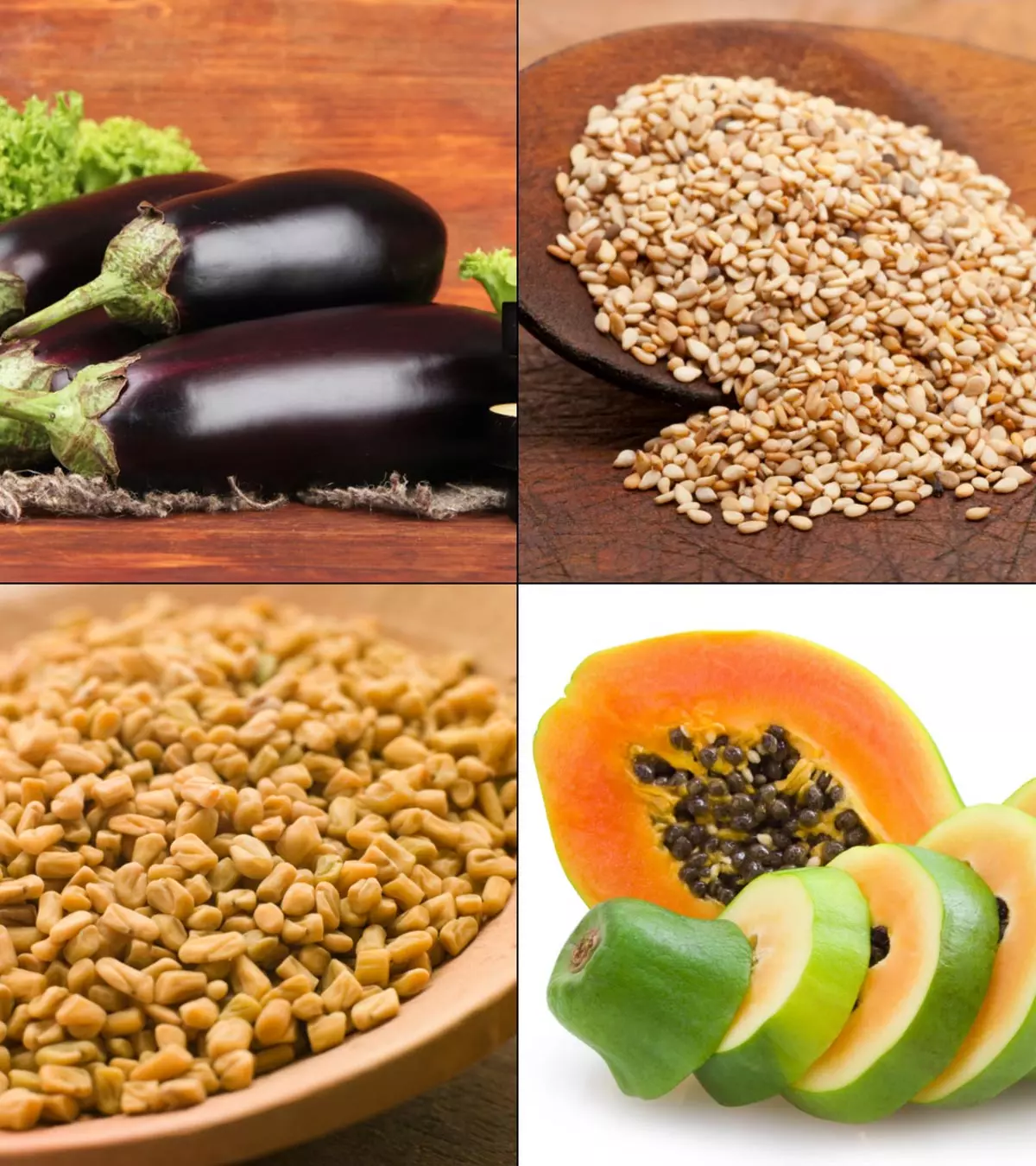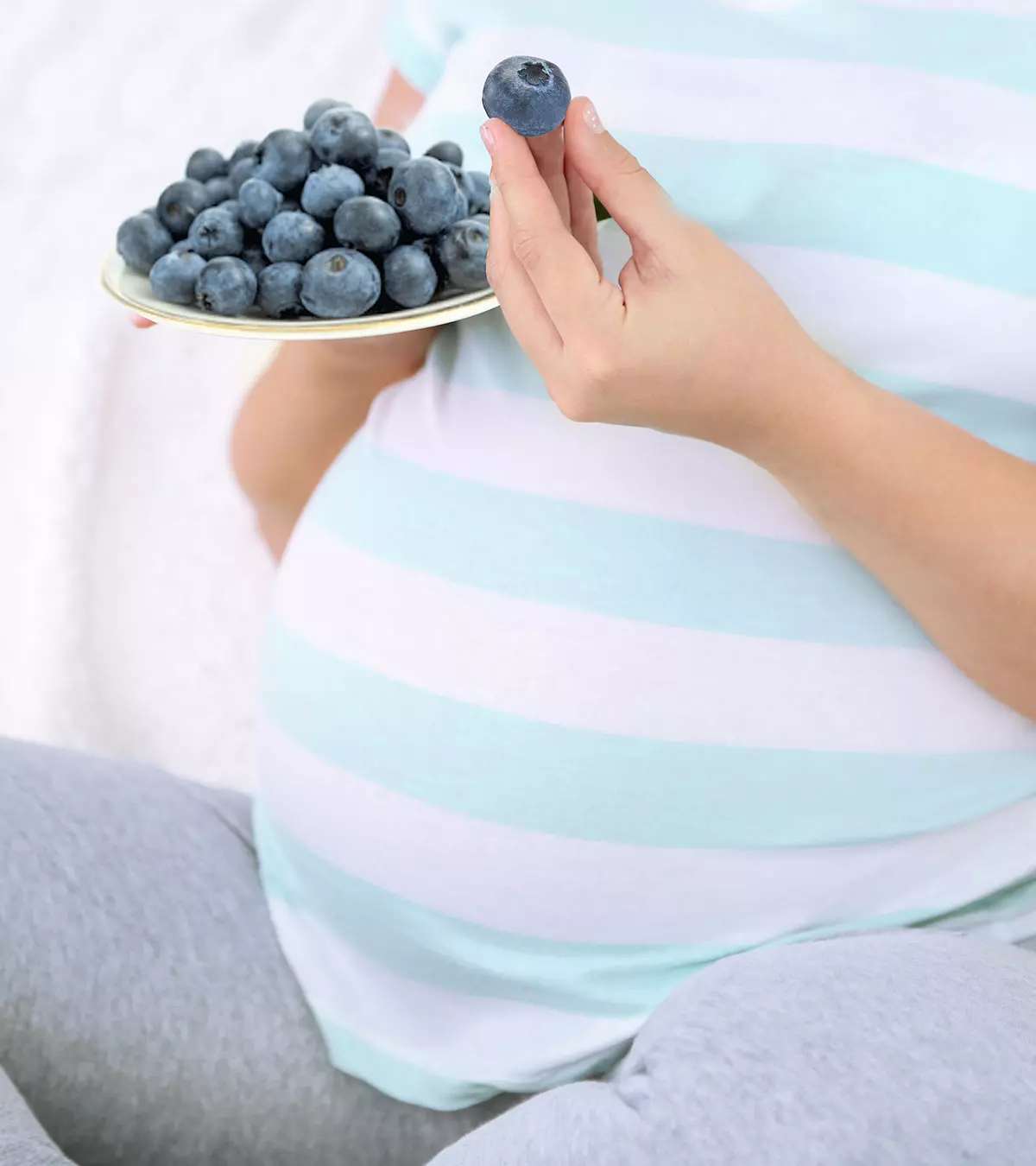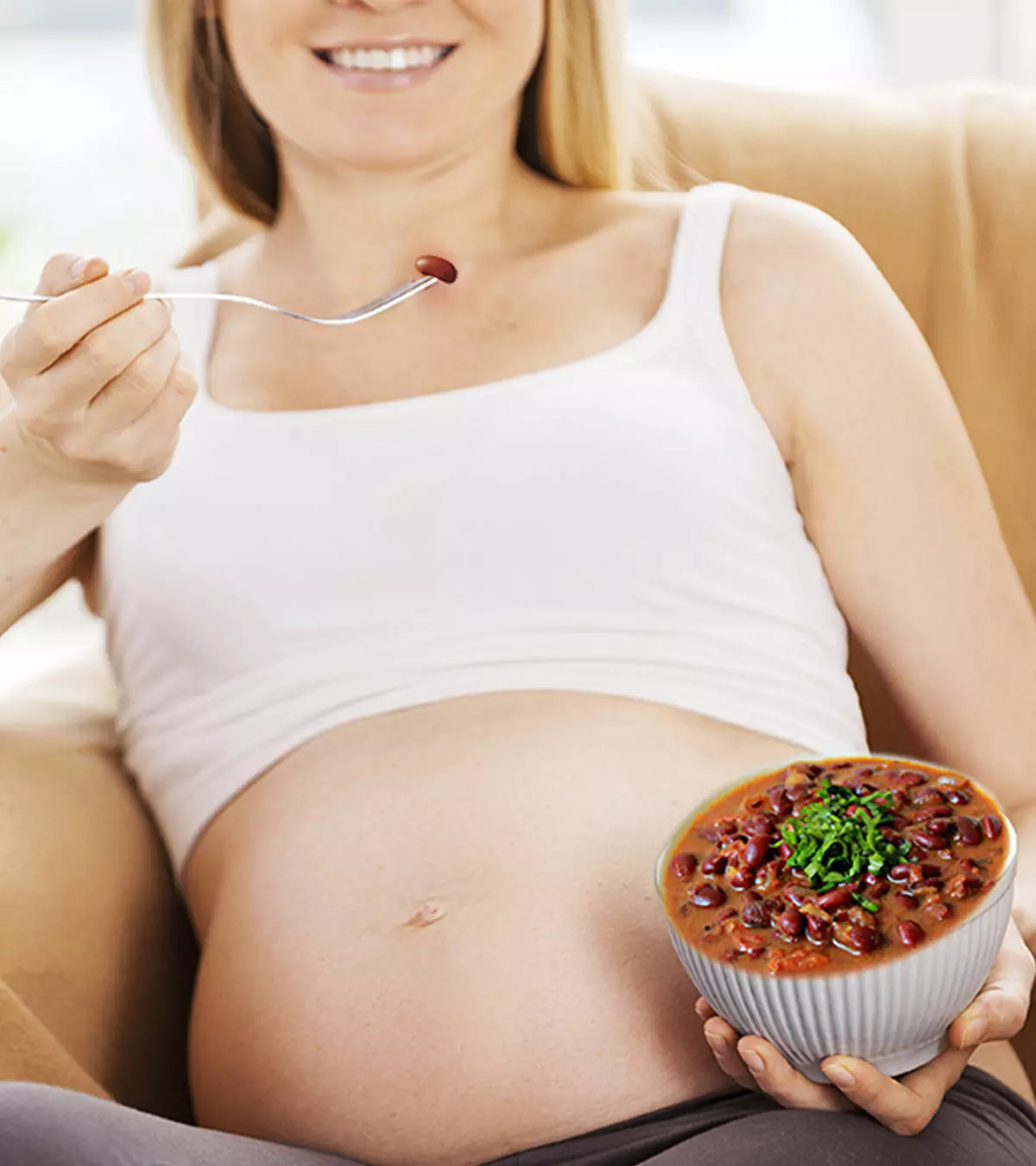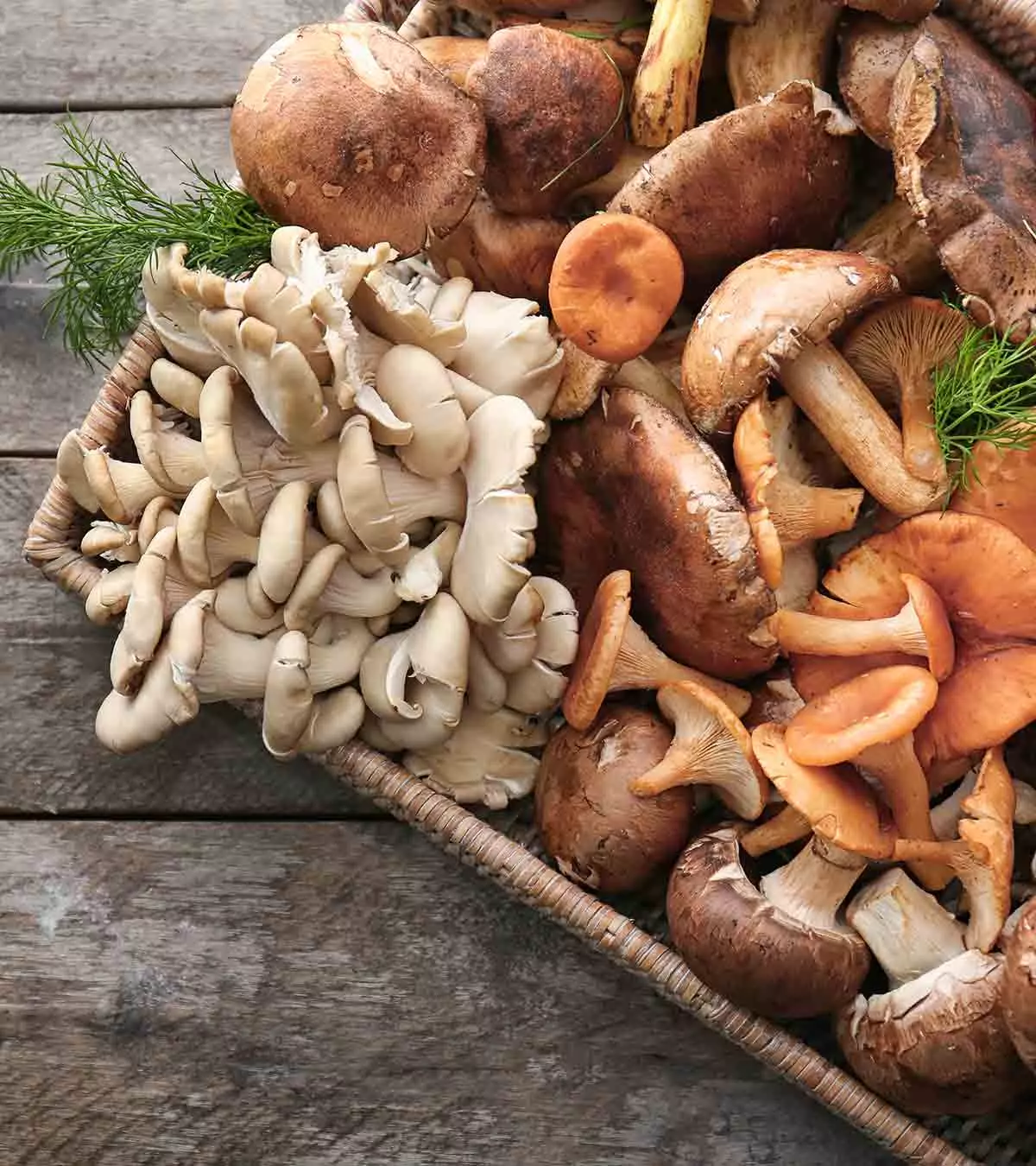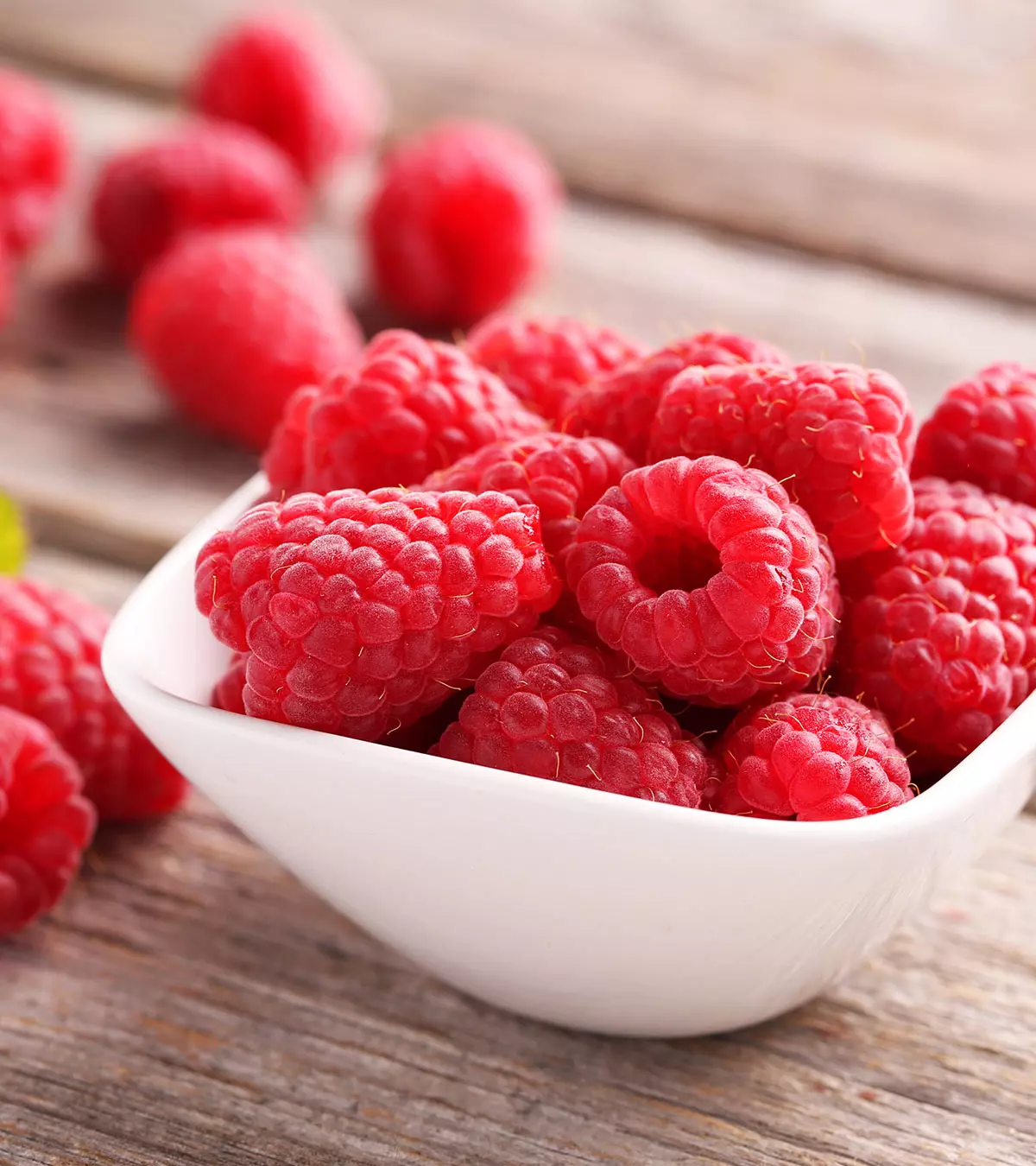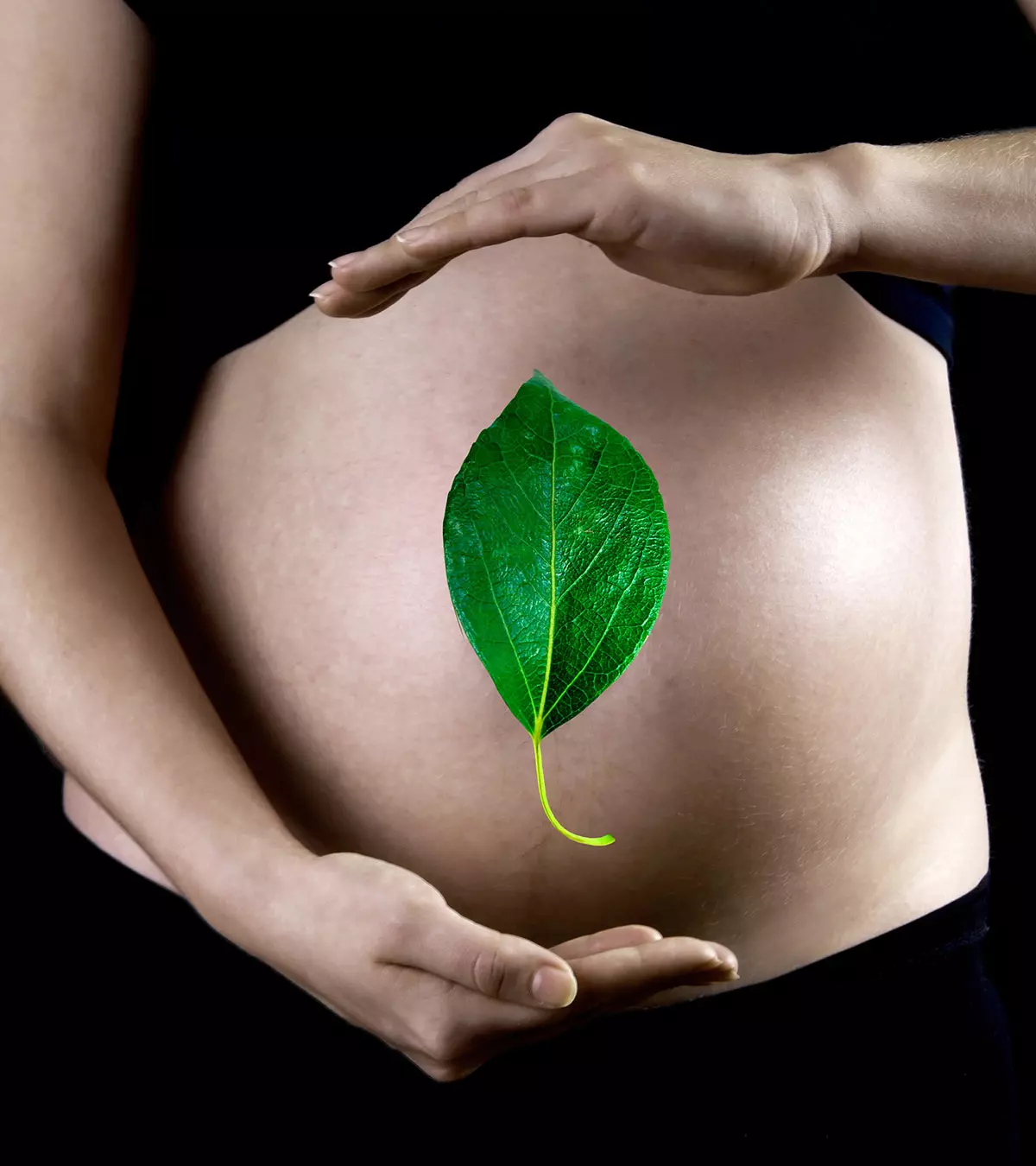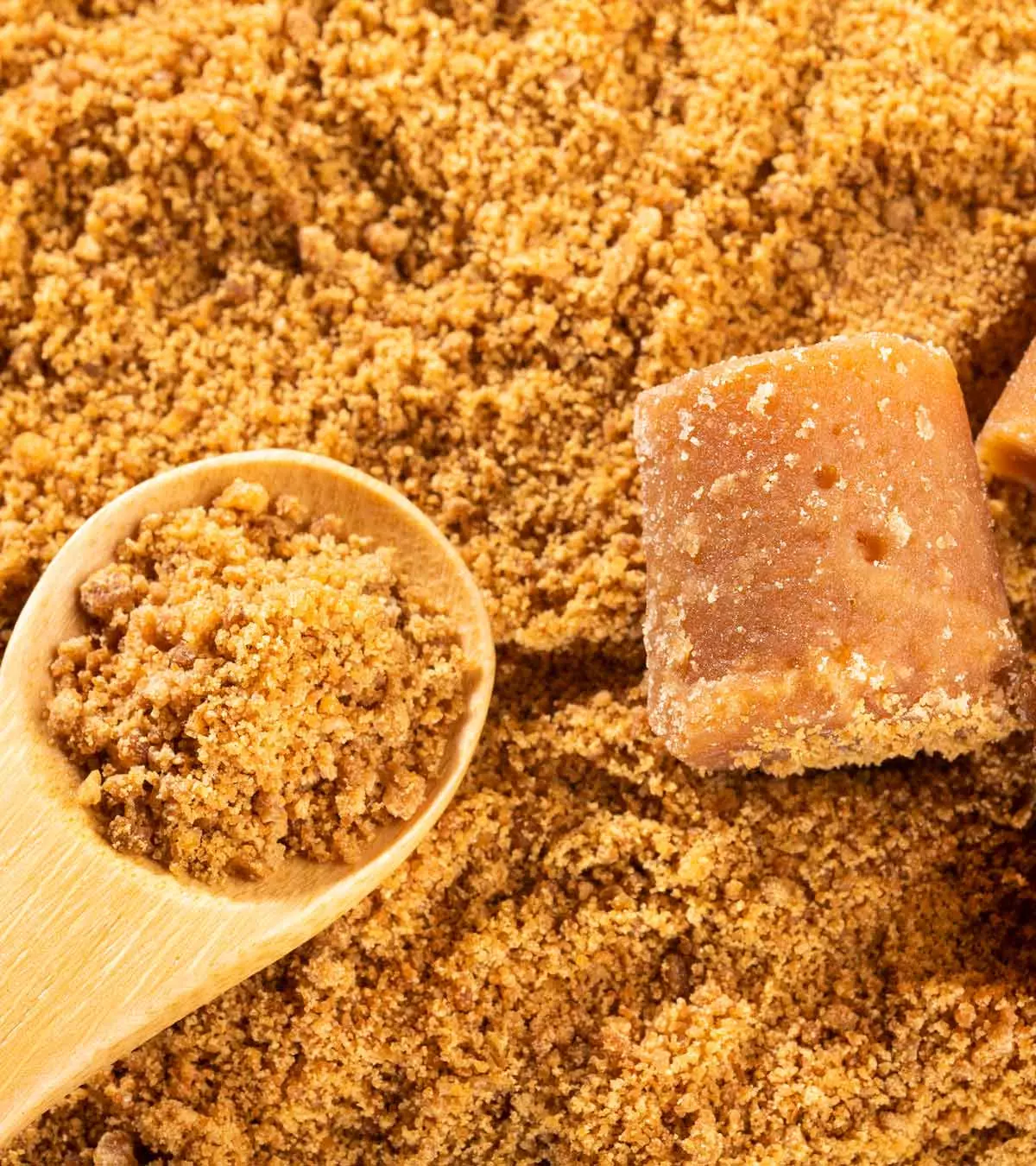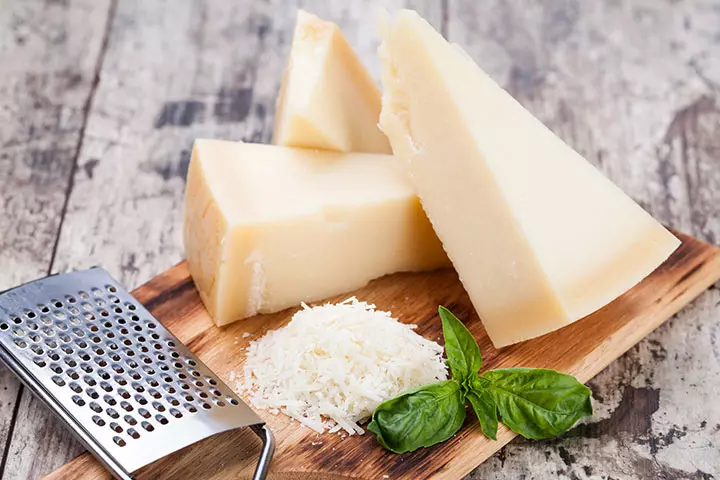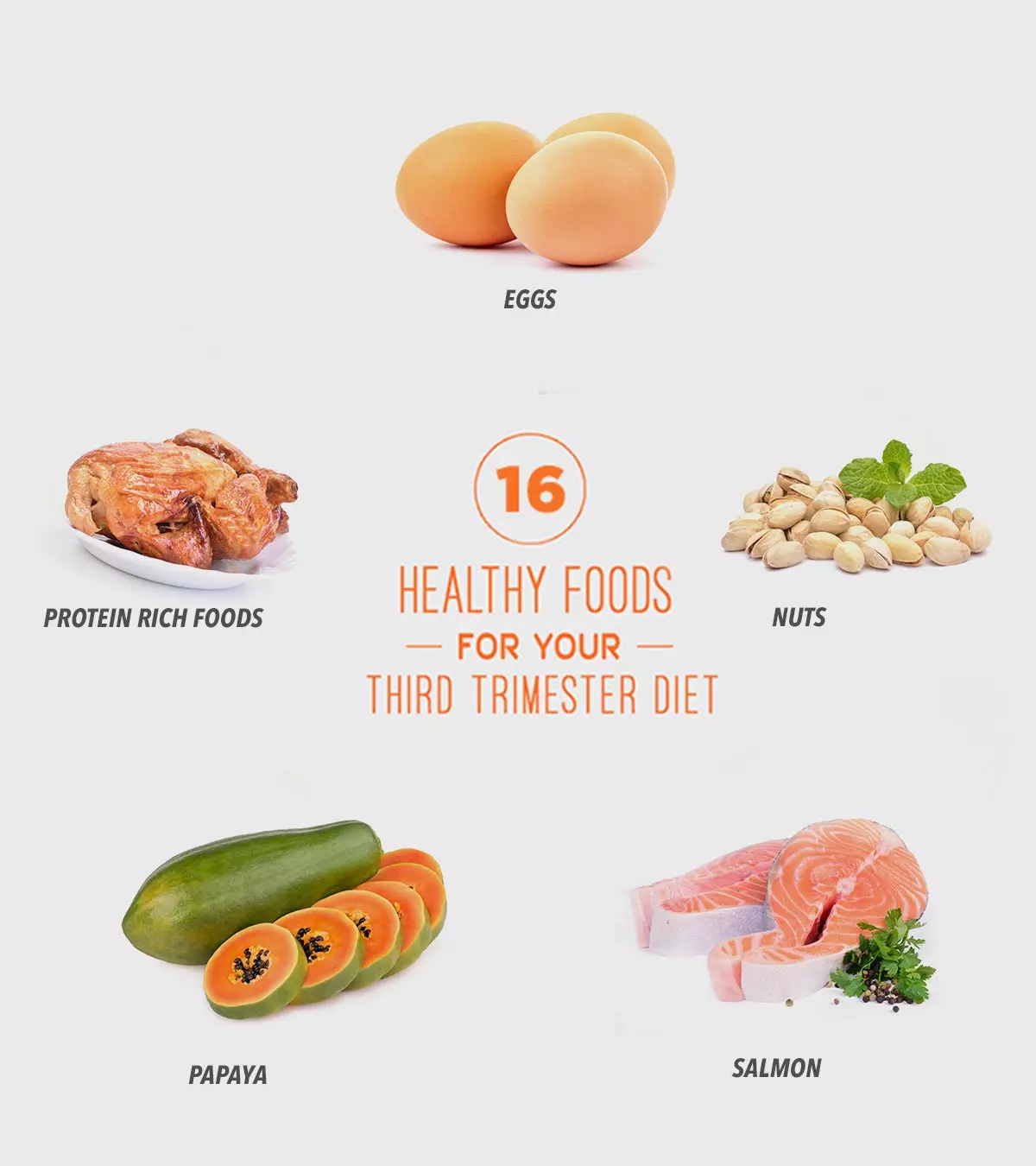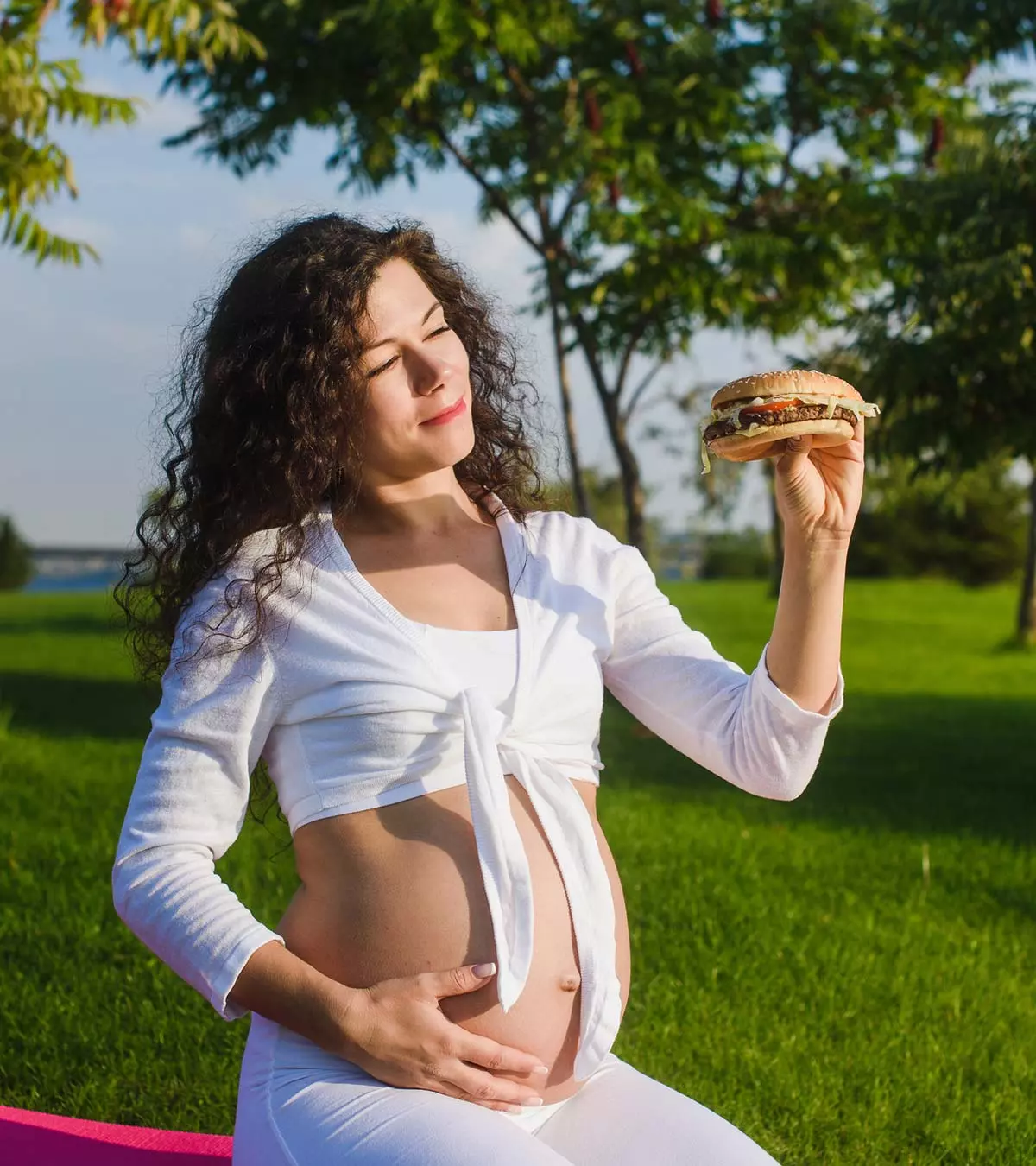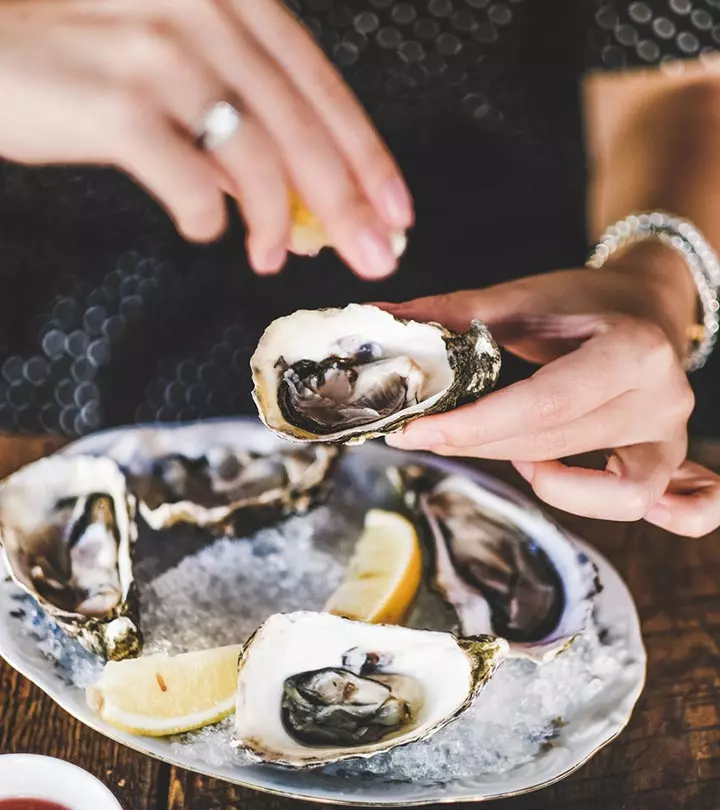
Image: iStock
Oysters are nutrient dense foods and rich in Omega-3iHealthy fats that are beneficial for our heart, brain, and many other ailments. fatty acids. Consuming oysters during pregnancy can aid in fetal development and growth due to the protein and zinc intake from this nutritious food. But one important thing that you should keep in mind is that not all oyster preparations are safe to be consumed while pregnant. For example, they can sometimes be served in the raw form, which is not recommended for consumption by expecting mothers. Read on to know more about the seafood safety and benefits of having oysters, their possible side effects, and when you should avoid eating them as a part of healthy eating habits.

Key Pointers
- The FDA recommends that pregnant individuals avoid consuming raw seafood due to the potential presence of dangerous bacteria.
- Raw oysters are a known risk factor for bacterial illnesses, such as listeria, in pregnant women.
- Cooked oysters offer a range of health benefits, including protein, Omega-3 fatty acids, selenium, zinc, and iodine.
- To minimize the risk of illness while consuming oysters, pregnant women should select oysters with closed shells, clean them before cooking, cook them quickly and thoroughly, and limit their intake.
Is It Safe To Eat Oysters When Pregnant?
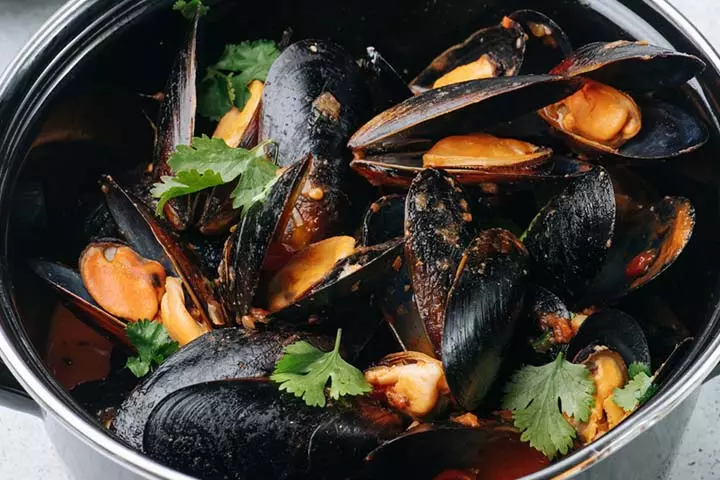
During pregnancy, it is quite natural for you to have questions like ‘can you eat oysters while pregnant?.’ To answer that, you can consume oysters only if they are fresh and thoroughly cooked. Oysters are mostly served in raw form but that could be dangerous to pregnant women (1). Therefore, you should make sure that they are thoroughly cooked.
Side Effects Of Consuming Raw Oysters

The US Food and Drug Administration (FDA) recommends against having raw seafood during pregnancy. Raw and undercooked meat products have a high chance of carrying harmful bacteria.
- When you ingest raw or undercooked oysters that contain bacteria, including listeriaiA bacterium that grows in raw or unpasteurized foods and can cause a serious pregnancy complication called listeriosis. , it could infect your digestive tract and make you ill (2).
- Due to a weak immune system health during pregnancy, you could be susceptible to foodborne illnesses, which have the potential to cause a miscarriage, stillbirth, premature delivery, or death of a newborn (3).
Therefore, avoid raw oysters for a low-risk pregnancy. However, you can enjoy cooked oysters and get benefitted too.
 Be watchful
Be watchfulWays Oysters Might Be Beneficial During Pregnancy
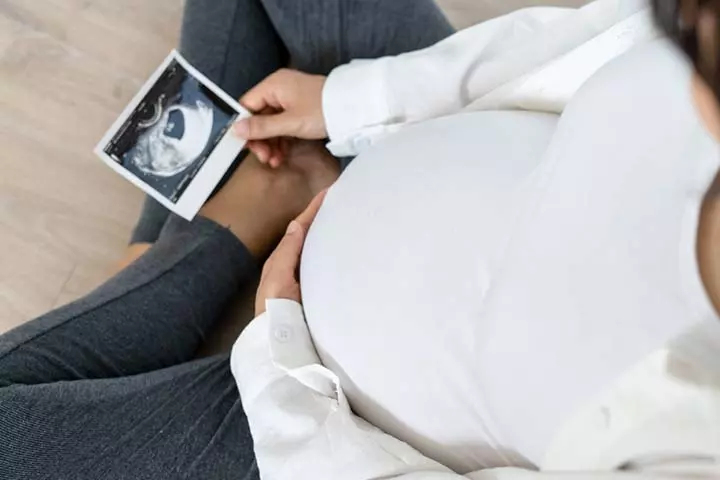
Oysters are nutritious foods. When you eat them properly cooked, they can contribute to your prenatal nutrition. The nutrients available in oysters include (4):
- Protein: Helps in fetal tissue growth and also plays a role in protecting breast and uterine tissue (5).
- Omega-3 fatty acids: Crucial for the baby’s brain development. The omega 3s lower the risk of preeclampsiaiA pregnancy disorder characterized by high blood pressure, water retention, and protein content in urine. , preterm birth, and improve birth weight in babies (6).
- Selenium, zinc, and iodine: Support the endocrine system and fetal growth and development (7). The micronutrients are needed in only small amounts.
- Iron: Iron–rich foods improve your blood volume and prevent anemia.
- Sodium and potassium: Essential electrolytes needed for the general functioning of the body and maintaining blood and fluid volumes (8).
- Vitamin D: Works with calcium in strengthening the bones (9). However, vitamin D is mostly made by the body with the use of sunlight and does not require any external food sources.
- Folate: Folate intake before or during pregnancy may reduce the risk of gestational diabetes.
The nutrients available in oysters are present in other food sources as well. You do not have to eat oysters for their health benefits if you are getting the daily recommended allowance of these nutrients from other food sources. However, if you love to eat oysters then you may do so but with some caution.
Measures To Take While Consuming Oysters
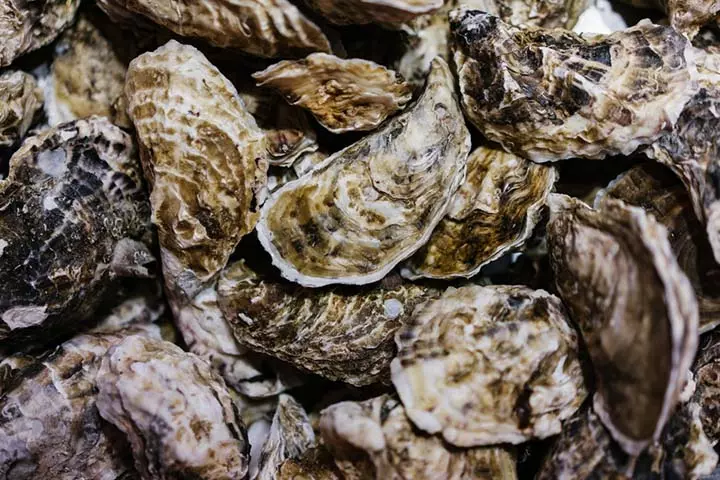
Here are some things to consider before you consume oysters:
- Buy closed shell varieties and not opened shells. Closed ones are fresh and carry that smell of saltwater.
- Cook them immediately after buying rather than storing in the refrigerator for a later date (10).
- Brush the shells to clean them and remove the bacteria and contamination. Oysters are generally cooked with the shell intact.
- If you want to fry or sauté the oysters, you can first boil the oysters by adding some herbs. It eliminates any bad odor and also cooks the inner meat perfectly.
- Cook the oysters completely. Half-cooked oysters might still contain bacteria and parasites. According to the US Centers for Disease Control (CDC) and the FDA, you should cook shellfish (that also includes oysters) to 145°F to kill the harmful bacteria and parasites.
- Eat occasionally and in limited portions. Although oysters contain lower levels of mercury, overeating may cause complications (11). 8 to 12 ounces of fish and shellfish consumption containing the lowest mercury levels per week is recommended (12).
 Experts say
Experts sayFrequently Asked Questions
1. Is it safe to consume canned smoked oysters while pregnant?
It is considered safe to consume canned or shelf-safe smoked seafood, including oysters, during pregnancy. However, smoked oysters or any other smoked seafood prepared at home and refrigerated should not be consumed because they may be contaminated with listeria (13).
2. What are the alternatives to oysters in pregnancy?
Alternatives to oysters include other seafood items, such as shrimp and fish. So, if you are craving seafood, eating shrimp during pregnancy might not be a bad idea. If you are a vegetarian or vegan, you may consider protein- and micronutrient-rich food items such as nuts and seeds.
3. Are oysters considered a pregnancy “superfood”?
Yes, oysters are considered a superfood due to their high nutritional content. They contain minerals, vitamins, and omega-3 fatty acids (16).
4. How do environmental factors, such as pollution and climate change, impact the safety and nutritional value of oysters for pregnant women?
Changes in ocean pH, temperature, pollution, climate, and salinity may reduce macro and micronutrients, including vital nutrients like protein and lipids, in oysters, suggesting potential risks to pregnant women’s health and well-being (17).
Oysters are good during pregnancy since they are low-mercury seafood rich in vital nutrients such as lean protein, omega-3 fatty acids, prenatal vitamins such as vitamin D and vitamin B12, selenium, iodine, and zinc. You can consume fresh and thoroughly cooked oysters during pregnancy if you don’t have any seafood allergies. However, keep in mind that even though oysters are low in mercury, they still have small quantities of it. Thus, consume this delectable seafood in moderation as a part of a healthy, well-balanced diet to prevent excessive ingestion of electrolytes and harmful toxins such as mercury.
Infographic: Measures To Take When Consuming Oysters
Oysters are a rich source of nutrients such as protein, iron, and zinc, which are important for a healthy pregnancy. However, it is crucial to handle and cook oysters properly to avoid food poisoning. The following infographic provides some key points to keep in mind if you are planning to eat oysters during pregnancy. Do give it a read.
Some thing wrong with infographic shortcode. please verify shortcode syntax
Some thing wrong with illustration image shortcode. please verify shortcode syntax
Enjoy the delicious and nutritious pleasure of oysters, packed with essential nutrients and vitamins. Embrace the health benefits of savoring oysters for improved well-being.
References
1. Julie Garden-Robinson and Tami Totland; Safe and healthy eating during pregnancy; North Dakota State University (2016)
2. People at risk: Pregnant women; Food Safety Information (2019)
3. People at risk: Pregnant women; Food Safety Information (2019) U.S. FDA
4. Mushrooms, oyster, raw; USDA, FDA
5. Trina V Stephens et al.; Protein requirements of healthy pregnant women during early and late gestation are higher than current recommendations; The Journal of Nutrition, Volume 145, Issue 1, January 2015
6. Omega-3 Fish Oil and Pregnancy; American Pregnancy Association
7. Samira Khayat, Hamed Fanaei and Abdolhakim Ghanbarzehi; Minerals in pregnancy and lactation: A review article; Journal of Clinical & Diagnostic Research (2017)
8. Leeah Whittier et al.; 26.3 Electrolyte balance; Open Oregon State – Open Textbooks Sites
9. Prenatal nutrition-preparing your baby for lifelong health; University of Michigan Medical Center
10. Fish and shellfish; NHS (2018)
11. Mercury in fish; Better Health Channel
12. ACOG practice advisory: Update on seafood consumption during pregnancy; American College of Obstetricians and Gynecologists (2017)
13. Foods to Avoid When Pregnant; American Pregnancy Association
14. Are Raw Oysters Safe to Eat During Pregnancy?; National Capital Poison Center
15. Oysters and Vibriosis; CDC
16. Cobos, Ángel, and Olga Díaz.; ‘Superfoods’: Reliability of the Information for Consumers Available on the Web; National Library of Medicine
17. Tanika C. Shalders et al.; The nutritional and sensory quality of seafood in a changing climate; Marine Environmental Research
Community Experiences
Join the conversation and become a part of our nurturing community! Share your stories, experiences, and insights to connect with fellow parents.
Read full bio of Moloko Mehlape
Read full bio of Swati Patwal
Read full bio of Rebecca Malachi
Read full bio of Dr. Joyani Das







